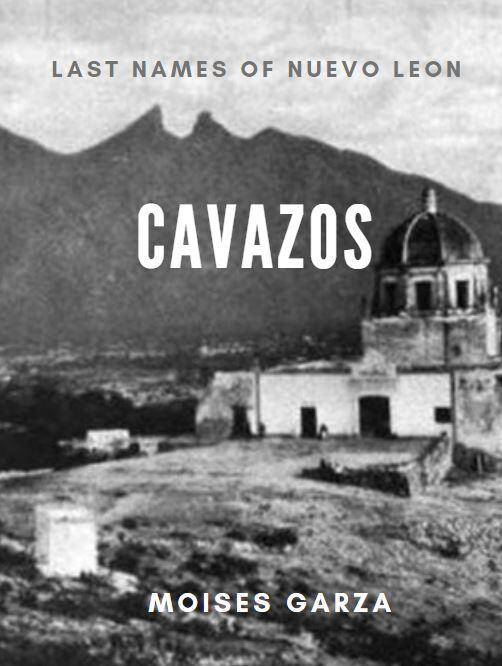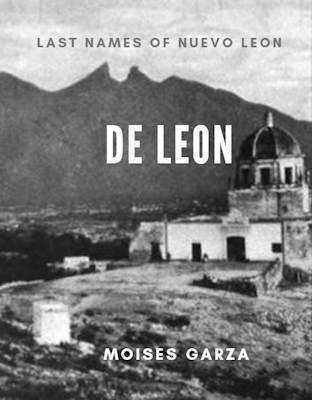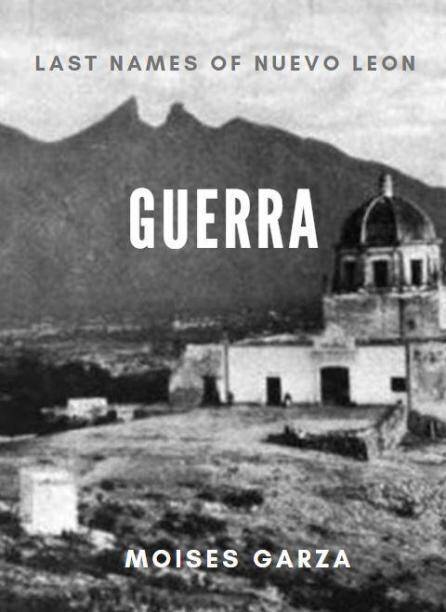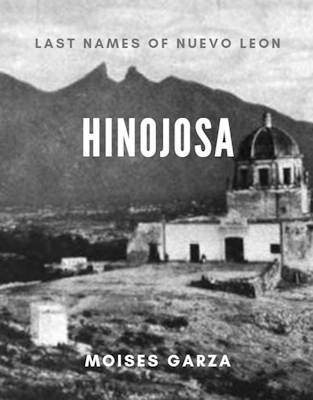David Cantu shares with us stories about his life and the very important people that he has meet along the way, specially those that left an impression on him. This post contains three unique stories and a poem that are full of feeling, love, and character.
A mother’s prayers are forever
1918 was the year that the notorious plague had invaded the Rio Grande Valley, hundreds of our people died in the span of a few years. Our Maternal grandmother Martina Cantú contracted the notorious flu shortly after giving birth to our uncle Juanito and never recovered from her illness. On her death bed she made two requests, one of her Co-Madre Paulita Contreras and the other of her elder son Nieves Flores. Paulita and Eulalio would take the three year old Merced and raise him and Nieves would adopt the baby Juanito, both death bed wishes were complied with a lifetime of love and devotion.
Eulalio and Paulita were delighted as they themselves had no children at all. Their word was their bond; they did not need any papers to comply with Martina’s dying wish. Merced came to live in La Grulla Texas as a Contreras. He grew up as a Contreras and went to school as a Contreras, and on June 21st, 1941 he even married our mother as a Contreras. The first five of our eight siblings were born under the last name of Contreras, years later we would have to go to court to reclaim our birthright legal last names.
It was not until the Draft Board solicited our father’s presence for service that Mama Paulita reminded him that he could not go to war because he was a Mexican Citizen and when he refused to report for induction he became a fugitive and moved to Mexico. Since his hometown of Villarreales Tamaulipas was just across the river from La Grulla it was quite easy for him to swim the river at night and visit us frequently. I remember his whistling in the middle of the night signaling that he had just crossed the river.
My sister Hilda was born on October 3rd 1942 and our father was apprehended in April of 1943 and processed through the federal system resulting in serving three years of prison time at La Tuna Federal Prison in Canutillo Texas. After serving three years at La Tuna he was sent to the Starr County Jail for per-release time. That is where I met my father, I remember quite well how much my mother suffered, her pride kept her from sharing her grief and she would cry each night not knowing where our next meal would come from or where we would be spending the next night; my first memories of my dad come into my re-collective focus as I remember climbing the stairs at the Starr County Jail yelling at him that I was coming to see him. Upon his release sometime in 1946, he was deported to Mexico where Papa Lalo our grandfather, owned a small house five houses down from where our mother had been raised. The house had once belonged to his sister Paula Contreras de Duarte, Paula had died in 1920 from a snake bite that resulted in the same flu that had killed our grandmother Martina and the house where she lived was now vacant so he gave the house to our mom and dad. That is where our family had its first official residence
In San Miguel we lived about five houses down the street from my grandfather’s house. I recall walking back and forth between our house and my grandfather’s home. Just beyond our house lived Abelino El Carnicero; he would butcher cows, calf, hogs, chickens and goats all day long, his business was run out of his backyard and he had all of the neighborhood dogs trained to respond to his whistle at his own will time and command. About three times a day he would gather all of the waste product from his butchering and face the south and whistle, every dog and cat that lived south of his business would come running and they would clean all of the waste meat, fat, blood and bone in the huge trough located at the bottom of the two acre tract. The next time he would face the east and whistle and the same thing would happen, the last whistle of the day was to the west and the dogs from that part of town would come running. Abelino was a friend of my grandfather that had followed our uncle David to the Mexican Revolution and went on to become one of Pancho Villa’s Dorados, they called him “El Mocha Orejas” he was quite the neighborhood hero from his Revolutionary days and his waste management dog operated service kept his place clean all day long. His place, as well as ours and my grandfather’s backed up to the Estuary “El Estero” and there were no houses to the north, the estuary ran all the way to the river.
My mother was very cautious with the way she dressed me and would make sure I was always bathed and dressed in my best when I walked outside the house to go visit my grandfather. On this one occasion I must have been three or four years old but I recall that my mother had sent me to my grandfather’s place to bring back two quarts of freshly milked milk straight from the cow’s tits. My grandfather would take advantage of the opportunity to teach me how to milk a cow. He would sit on a stool and I would stand between his knees and begin pulling on the cows tits and finally he would grab one of the cow’s tits and spray milk in my face. I loved those moments with him. On this one day, I was on my way back with the two quarts of milk when suddenly Abelino whistled at the dogs from the east and before I knew what was happening the greatest stampede of hungry dogs ran around me or jumped over me knocking me down and spilling all of the milk on me and my clean outfit. I was terrified it seemed as if every dog in the world was in that stampede. The smallest ones along with the cats started licking the milk from my face when the larger ones had finally ran through and I thought they were going to eat me alive. All I remember is that I was kicking and screaming at the top of my lungs and my mother came running with a broom in her hand beating the hell out of the dogs.
It was not until we had settled down in Port Houston and I had become a busy shoe shine boy that someone gave me my first dog; it was then when I finally lost my fear of dogs.
It was at about this same time, when I was about four years old and we lived in Tia Nene’s old house in San Miguel, the joy of childhood kept me from seeing how very poor we were, we didn’t know we were poor, we didn’t know about such things as Christmas trees and giving and receiving presents like people do today, yesterday, today and tomorrow were almost identical. Our world revolved around our parent’s daily life and necessities of the day.
El Tio Chale
My Tio Chale, bless his soul, could hold a conversation in rhythmic rhyme for hours, he was simply a little boy with a golden heart, I always held him in the highest regard and viewed him as my older brother, we used to sleep on the porch at the rear of the old wooden house at Papa Meme’s property by the old Anahuac tree and he had an old huge battery radio he would listen to every night. That radio was his college and his university, he learned a lot from that radio. I remember that one Christmas he made up a song about a little colt he called “Carlitos El Potrillito” and he would sing it to me as a lullaby.
In 1953 after we moved to Port Houston I was placed in the third grade classroom of a Mrs. Wilson and it so happens that it was about Christmas time and she started to sing some Christmas songs to us. One of those songs that she sung was Rudolph the Red Nosed Reindeer and it sounded identical to the song that my Tio Chale would sing to me as a little boy. I remember how proud I felt that my uncle Chale had written that song and I stood up and explained in my broken English/Spanish mixture. I got in trouble for arguing with Mrs. Wilson and trying to correct her on the lyrics explaining that the reindeer was really a potrillo named Carlitos and that he belonged to my uncle Tio Chale. She had no earthly idea of what the hell I was talking about, she thought I was crazy.
Our Mother
My mother was a dynamo of energy, an explosive personality that could change direction on a dime and continue forward without losing a beat or a step. She was driven by urgency to excel in anything she did. She was always prepared for any and all eventualities that life may throw at her. She carried a loaded pistol in her purse, even to mass on Sunday mornings. But when her day drew to a close, she was an easy-going and positive person with an outstanding outlook on how to go about daily life. No matter how poor we were, she knew how to live the beautiful life. But the beautiful life didn’t mean the luxurious life – to her it meant a relaxed, family-centric lifestyle every evening at 6:00 P.M. She would gather all of her children around her bed and pray the Holy Rosary with all of her children participating in the actual leading of the prayers.
After the Rosary we, the children would occupy ourselves with school homework or daily domestic shores as the occasion may require. Supper consisted of real food, natural, authentic and mostly produced in our backyard. Our concept of eating transcended “fast and cheap.” Mother was all about “slow food.” Dinners were unhurried and eaten around a table (not a TV or computer screen) with all of her family.
My mother’s family was very close knit, our Grandparents were always in her prayers, her sisters always remained close and the extended family was huge and welcoming. Now a days our children go away to college and settle down somewhere other than where they grew up, it tended to be the opposite in my mother’s days. Having family nearby was deeply valued. Having grandma, aunts, uncles and cousins visit in spite of the distances or drop by for dinner during the week or having a weekly extended family meal on Sunday was common and brought everyone together.
My mother was our “Commanding Officer” under her tutelage we learned the great communal feel that comes from the fact that we congregated outdoors as a family in parks and at picnics. Friends and relatives would meet up on occasions, creating a lively atmosphere.
Our daily routine was to rise and shine early, make up your bed, shower dress and arrive at the breakfast table with a smile and a hearty good morning, “Buenos Dias dele Dios” (God give you a good day) The idea of health and happiness went together it was more like the idea of maintaining a good public image. She hammered in our heads the idea that we dress our best when we go outside the house, we don’t get drunk in public, and we do not eat while we walk or wear pajamas to the dinner table because it would have a negative impact on our image. Being beautiful was more than just looking good; it’s a way of life that emphasized aesthetics and good behavior. She ordered us to be “Good People” That was our Golden inheritance, from her to her children.
By the time I reached the age of fourteen I had become a troubled young man. I had grown up shining shoes in beer joints and whore houses up and down McCarty Drive in Port Houston Texas, gambling, stealing and running away from home had become a way of life, but very early in life, I had been influenced by three very wise men. My mother’s father “Papa Meme” would pull me up on the haunches of his horse and I would ride with him all day long listening to his stories and his singing, I thought I was living in heaven. When we returned to Mama Mina’s house “Tio Chale” would become my baby sitter, from him I learned how to read write and speak in Spanish. “Papa Lalo” would buy comic books in English and have me tell him the story in Spanish; he was a strong teacher and a versatile, easy-going workaholic. His workdays were often sixteen hours or more. He spent most of this time over the hot coal-fired forge and large anvil, hammering an edge on plows or horse shoes and other items used in farming communities around on both sides of the river. When I went to stay with him we were calabaza candy salesmen. Papa Lalo would make candy, barbacoa, chicharones and cabrito in the back yard and he and I would go to La Grulla, Los Ebanos, San Miguel, Peñitas and La Joya to sell our merchandize, and he made me carry the money, make the sales pitch and handle the change. He made me feel like the most important and fortunate person in the world. He made me promise that I would keep that feeling for the rest of my life as well as my faith in our Blessed Virgin Mary, my trust in the coming of the Kingdom of God, and my love and loyalty to Our Lady of Guadalupe, The mother of God.
All three of them were my idols but it was Papa Meme who convinced me to join the Marine Corp later on in my teen age years. He felt that fate had cheated my father, his primary ancestor, Carlos Cantú Gonzalez was the founder of Reynosa Tamaulipas and political enemies had conspired against him to relieve him of the position of Alcalde and Justicia Mayor of the town in 1757, the plague of 1918 had taken his mother away when he was only two years old and a bad decision by his foster mother had advised him against joining the Marine Corp and encouraged him to return to Mexico
When “Papa Lalo” died in 1957 I took it real hard and it’s about that time that I started running away from home. But when I signed up to join the Marine Corp in 1960, my “Papa Meme” reminded me that “Papa Lalo” had commended me to “Our Lady of Guadalupe in a promise” saying that if I lived to be a God Fearing young man, he would visit the Basilica in Mexico City. After “Papa Meme” died in 1966, I went to the Basilica in Mexico City and Presented Our Lady of Guadalupe with the following poem that I authored in Spanish in their honor and left a copy there with their names printed on the poem asking the Virgin of Guadalupe to carry their souls to Heavens Gates. Years later I translated it to English.
Our Lady of Guadalupe
On the twelfth day of December, in the early morning hours
We the faithful congregate, expressing this faith of ours
Dressing your beautiful feet, with lovely bouquets of flowers
Each of us has a connection, with your miracles and powers
You bring hope to they that suffer; darkness has no chance with you
Advocating for the humble, in protection of the truth
The flowers that we bring this morning are fruits of the seeds you sowed
Once upon a mountainside in Mexico, several hundred years ago
Today is Guadalupano day, and pilgrims like Juan Diego know
It’s when we forgive offenses, all the small, great, new and old
We break bread, as we drink chocolate, in a modest communion
Sharing Gods sweet gift of love for us, in a faithful reunion
O’ sweet Virgin Mary, mother of our precious Lord
You have made your apparitions, throughout the Christian world
But you have blessed all of America, increasing our spiritual worth
You’re the Queen of Catholic America, all of south central and north
© 1966 David Noe Cantú
Primo, muchas gracias! Thank you David for sharing with us and agreeing for me to make you comment originally posted at, La Herencia de Los Longoria by Noe Gonzalez Salazar, into a post for everyone to enjoy.







